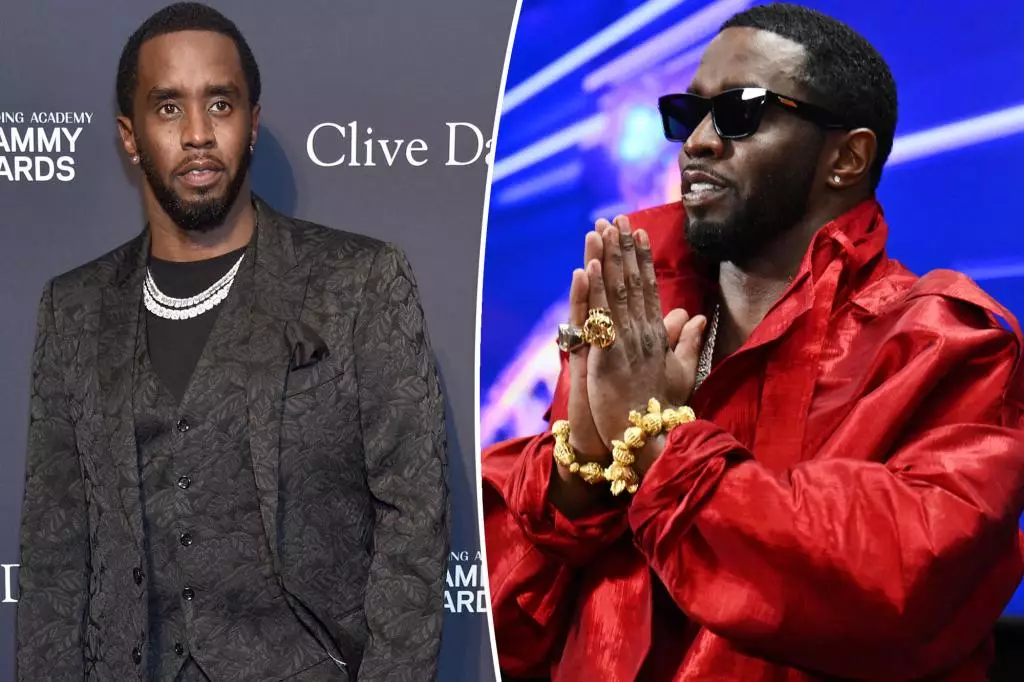In a revelation that has sent ripples through the entertainment industry, Sean “Diddy” Combs, an influential figure in hip-hop, finds himself embroiled in a controversial trial facing serious allegations of racketeering and sex trafficking. This situation exemplifies the complexities involved when celebrity status intersects with criminal accusations. The implications of such high-profile cases are profound, not only for the individuals involved but also for the perception of accountability in positions of power. The decision to postpone the final stage of jury selection till early next week instigates discussions about how the judicial system navigates cases punctuated by fame.
A pivotal aspect of this trial revolves around Diddy’s alleged conduct spanning nearly two decades, wherein he is accused of leveraging his celebrity status to exploit and abuse women. While the legal system aims to uphold justice, it must also contend with the cultural weight that figures like Diddy carry and how that influences jury perceptions. The trial acts as a litmus test, highlighting society’s struggle to reconcile celebrity culture with accountability. It urges the public to confront uncomfortable truths regarding consent, power dynamics, and the often obscured narratives of victims.
The Judicial Process: A Delicate Dance
The procedural aspect of the trial emphasizes the tension between legal strategy and social implications. Judge Arun Subramanian’s decision to defer jury selection sheds light on the intricacies of navigating a case filled with emotionally charged allegations. The defense’s request for additional time reveals strategic maneuvering, highlighting how legal teams respond to the pressures of public scrutiny and media attention. As the courtroom becomes a theater, the stakes are heightened; the jury selection process meticulously scrutinizes potential jurors’ capacities to approach evidence—including graphic visuals of claimed misconduct—without bias.
While this process aims for fairness, it also raises questions about how jurors will react to the visceral nature of the evidence presented. The trial will heavily rely on the jury’s ability to separate personal feelings about fame and past grievances against Diddy from the fair evaluation of presented facts. The challenge remains: can a jury composed of individuals affected by media portrayals of Diddy objectively assess the case at hand?
Allegations at the Center: A Complicated Discourse on Consent
Central to the accusations against Diddy are the conceptions of consent and agency. The indictment outlines shocking assertions, including drug-induced sexual encounters and physical abuse—depicting a narrative that fundamentally questions the boundaries of consent. These revelations invite a broader societal discourse surrounding the behaviors of powerful men and how accountability is often sidestepped in high-profile circles.
Diddy’s legal team contests these allegations, arguing that the prosecution’s narrative seeks to criminalize behaviors framed as consensual interactions among adults. This raises a significant and contentious debate regarding societal judgments about intimate relationships, especially within the realms of substance use and power imbalances. Is it possible to draw a definitive line between consensual erotic activity and predatory behavior in a climate characterized by hedonistic indulgence? Understanding this case goes beyond legal statutes; it reflects a cultural reckoning with norms surrounding sexuality and consent.
Perceptions of Violence: The Burden of Visibility
One cannot overlook the weight of media representation, especially regarding the footage of Diddy physically assaulting a former girlfriend. The public’s reaction to such potent imagery adds another layer of complexity. The footage’s existence in the public domain doesn’t merely tarnish Diddy’s reputation; it acts as a catalyst for broader indictment against domestic violence. Audience responses during jury selection reveal that prospective jurors are deeply impacted by the video—some even excused from serving as they could not view the evidence impartially.
The notion of accountability becomes even more nuanced when examining societal reactions to these troubling events. The footage is not merely a representation of an individual’s criminal behavior but can also serve as a mirror to society’s approach to issues of misogyny, power, and violence. Are we inclined to condemn the perpetrator based solely on their public persona, or do we grapple with the uncomfortable truths that accompany myriad instances of abuse within our cultural fabric?
The upcoming days in court promise to hold a mirror up to the intersection of celebrity, accountability, and cultural norms. The trial of Sean “Diddy” Combs invites a vital examination of these issues, challenging us to confront uncomfortable truths about power dynamics, consent, and our collective understanding of justice in a highly mediated world.

